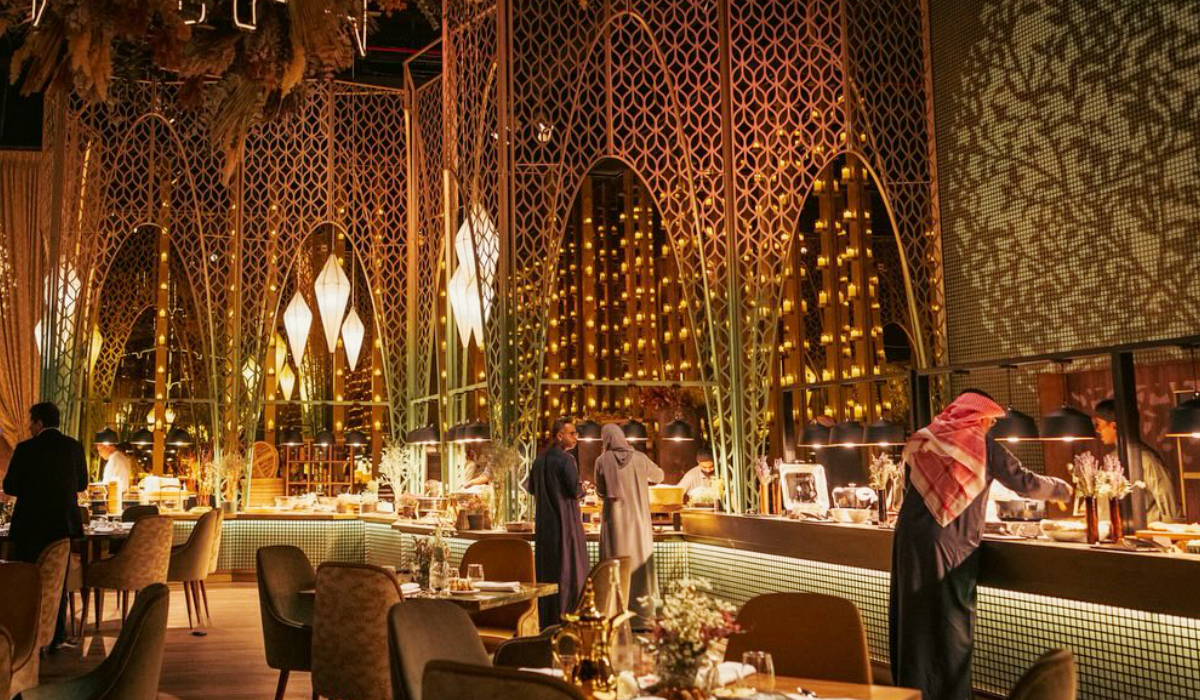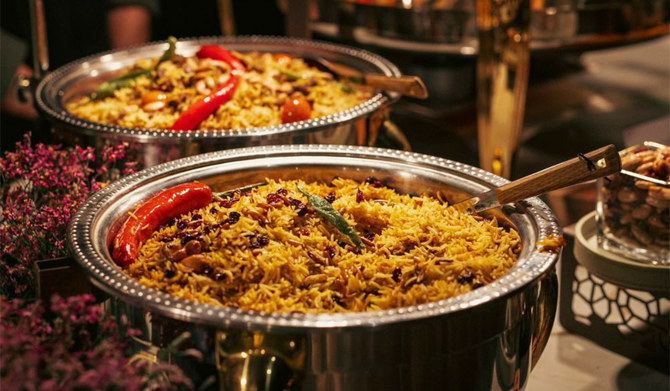JEDDAH: Jeddah’s iftar scene offers a rich tapestry of dining experiences, blending traditional flavors with contemporary flair.
As Ramadan enveloped the city in its spiritual embrace, a variety of culinary treasures provided unforgettable iftar experiences.
Ahmed A. Darwish’s expertise and passion for culinary excellence set the stage for an exploration of the top iftar spots in Jeddah.

Al-Mirkaz Tent at Laylati Hall offers a ‘captivating bedouin tent atmosphere’ featuring a variety of cuisines. (Supplied)
Darwish is the CEO and co-founder of Foodies Inc., a specialist agency catering to both restaurant enthusiasts and owners, including content creation services that go beyond traditional social media management.
Darwish told Arab News about the five best iftar experiences in the coastal city.
Alfolk
“Alfolk Ramadan tent at Shangri-La hotel features a buffet of global dishes and live cooking stations, surrounded by opulence,” he said.
After two years of success, Alfolk has become one of the most distinctive modern Ramadan destinations in Jeddah, with designs inspired by the city’s historical significance as a gateway to Makkah.

Alfolk Ramadan tent at Shangri-La hotel. (Supplied)
Diners can indulge in the finest culinary innovations, while learning about the city’s maritime heritage. The iftar menu is inspired by Jeddah’s rich history, featuring a variety of tasty local dishes that reflect the historical influence of sailors, fishermen, merchants, and pilgrims guided by the moon and stars.
Families can also benefit from the children’s club services, where youngsters between 2 and 12 can enjoy a fun and educational experience with a variety of organized activities.
The price is SR488 ($30) per adult and SR289 per child aged between 6 and 12.
Shababik
“Shababik offers a dive into Lebanese culinary traditions with family recipes in a warm, inviting atmosphere,” Darwish said.
Prices start from SR290 per person and SR150 for children under 8.
Marina Petite Cafe
“Marina Petite Cafe blends Arabic culinary delights with scenic views, creating a Beirut-like experience by the Red Sea at the Marina Yacht Club,” he said.
Prices start from SR230 per person and SR100 for children.
Al-Mirkaz Tent
“Al-Mirkaz Tent provides a captivating Bedouin tent atmosphere for an immersive iftar experience. Renowned for its stylish ambiance, it has consistently been recognized as the ‘see and be seen spot’ each year,” Darwish said.
Catering to diverse segments of Saudi society and capable of hosting over 600 guests, the tent presents a fusion of Saudi, Mediterranean, Asian, and Middle Eastern culinary delights.
It has been situated at Laylati Hall since 2019.
A splendid dining area has a buffet-style offering of traditional Arabic and international cuisine, priced at SR560 per person and SR280 for children aged 5 to 11. Children under 5 are not permitted.
Relish
Guests can embark on a distinctive culinary adventure through ancient Lebanese recipes, artfully crafted into delectable dishes presented in an elegant open buffet setting.
Relish has two branches in Jeddah and Makkah, with prices of SR149 for adults and SR75 for children aged 7 and above.



























